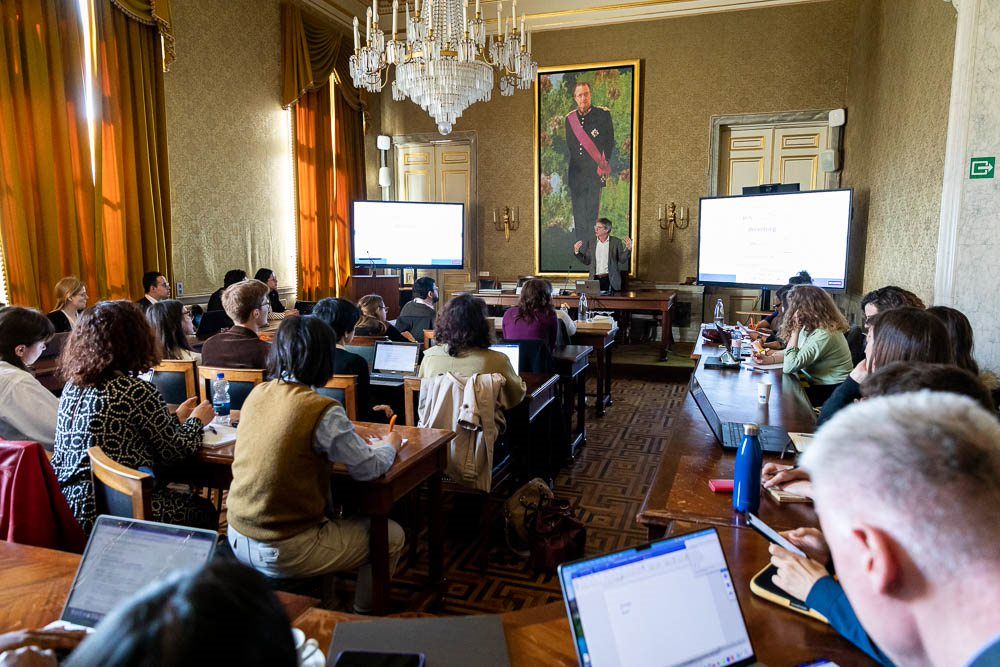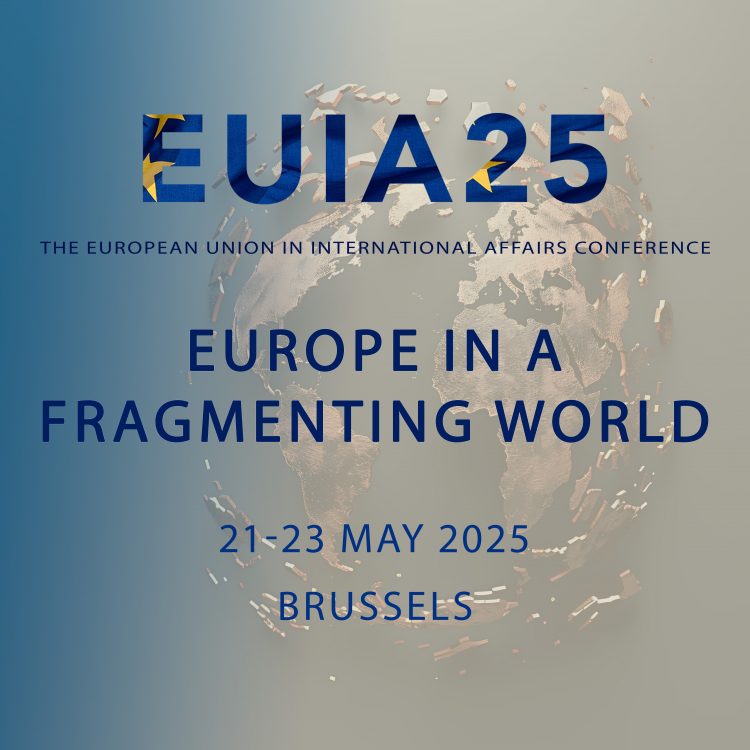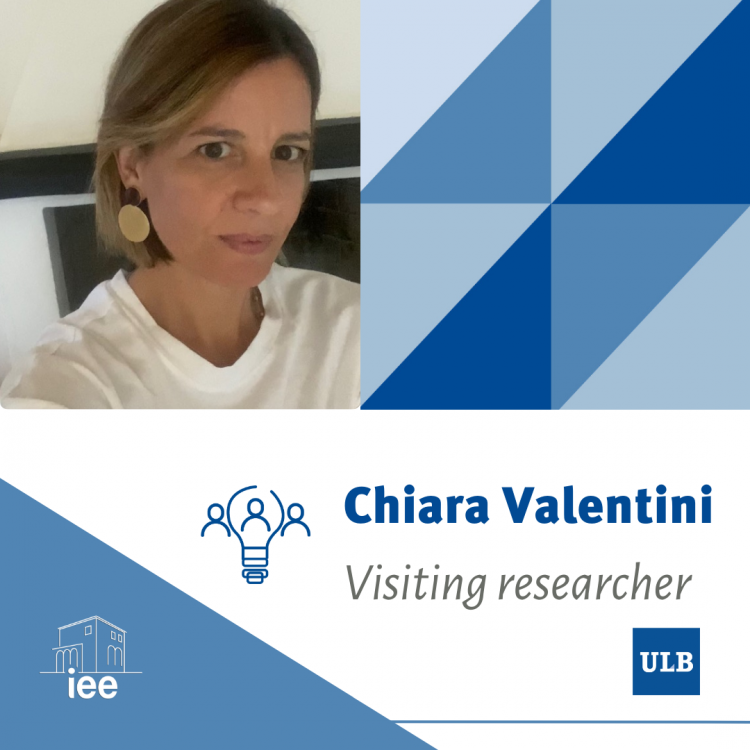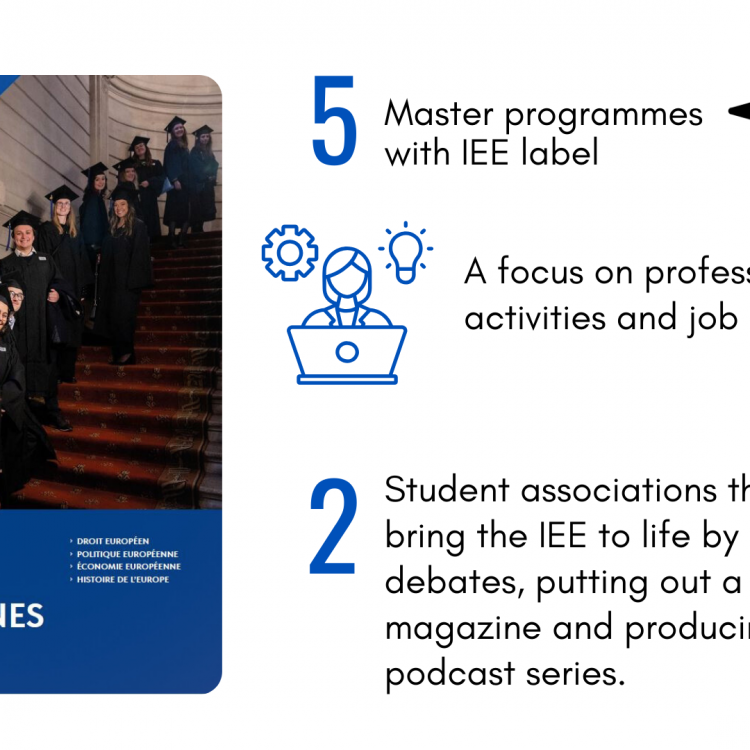The eighth edition of the EUIA23 conference took place in Brussels and focused on the theme Europe’s Pathways to (Dis)Engagement with the World. It featured roughly 400 participants from more than 40 countries for a programme of over 50 academic panels.
EUIA23 featured a keynote lecture by the Chairman of the EU Military Committee; a range of policy-link panels on EU-Africa relations as well as defence cooperation in Europe; and a debate of the editors of leading academic journals in the field of EU foreign policymaking.
This year, the conference was jointly organised by the Brussels School of Governance at the Vrije Universiteit Brussel (BSoG-VUB), the United Nations University Institute on Comparative Regional Integration Studies (UNU-CRIS), the Institut d’études européennes at the Université libre de Bruxelles (IEE-ULB), Egmont – the Royal Institute for International Relations, and the Department of Politics and International Studies (PAIS) of the University of Warwick.
The conference’s theme
In the last decade, home-grown and external shocks have fuelled a debate about the future of Europe’s engagement with the rest of the world. Should the European Union continue to be actively involved far beyond its borders and adopt a leading role in global and transregional affairs? Or should the EU reconsider its priorities and focus primarily on internal policies to become less dependent on the rest of the world? Proposals to enhance European sovereignty involve deliberate attempts to reduce some international entanglements while reinforcing ties with selected countries, be they prospective EU members or strategic partners.
The EUIA2023 conference offered a forum to debate the diverging pathways for the EU’s engagement or disengagement with the world. Contributions from all policy domains and actors involved in the redefinition of Europe’s place in international affairs are invited to foster an interdisciplinary and international debate. How non-European actors perceive and react to the EU’s involvement or disentanglement in their region is an important part of the discussion.
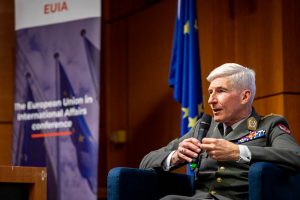
Highlights of EUIA23
The opening keynote
The formal opening of EUIA23 was a keynote by General Robert Brieger, Chairman of the EU Military Committee, who pointed out the need for Europe “to be able to project security, in partnership and autonomously”.
His presentation was followed by a recorded speech by the Deputy Prime Minister for European and Euro-Atlantic Integration of Ukraine, Olga Stefanishyna, on EU-Ukraine relations: “We believe it is crucial to start EU accession discussions by the end of this year. It will provide the necessary strategic structure for Ukraine to be rebuilt”.
The GEM-DIAMOND PhD symposium
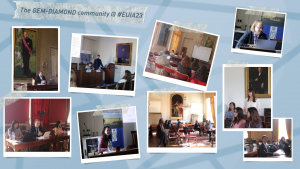
A Pre-Conference PhD Symposium was the occasion for the current cohort of the European Joint Doctorate Globalisation, Europe, and Multilateralism (GEM-DIAMOND) to present their research on EU’s capacity to act given the challenges facing Democratic Institutions, the rise of Alternative Models and mounting Normative Dissensus.
Our GEM-DIAMOND programme is a Marie Skłodowska Curie Action – Doctoral Network (MSCA-DN) involving 6 European – i.e. ULB, UvA, LUISS, UCPH, UBB, Paris1 – and 5 international – i.e. UoW, UNIGE, UL, WUT, FGV – degree-awarding Higher Education Institutes (HEIs) alongside 6 well-established non-academic institutions i.e. CEPS, IAI, GMF, PATRIR, FIDH, EGMONT.
Honoring Mario Telo
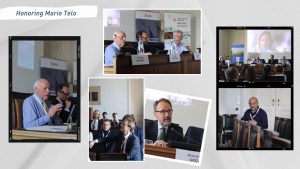
On May 4th, a special session was dedicated to honouring Professor Mario Telò’s legacy.
To honour his life and contributions, a panel chaired by Thomas Christiansen including friends and colleagues Emil J. Kirchner, Giovanni Grevi, Tereza Novotná and Frederik Ponjaert convened to discuss Professor Telò’s contributions to European studies and to announce and give some insights on his upcoming posthumous book Multilateralism Past, Present and Future: A European Perspective.
Professor at the ULB since 1986, holder of a Jean Monnet Chair ad personam since 1994, Director of the Political Department of the Institut d’études européennes (1989-2004), President of the IEE (2005-2009) and Vice-President (2009-2015), member of the Royal Academy of Belgium, Professor Mario Telò marked the institutional and intellectual development of international relations and European studies within the Department of Political Science of the ULB and the IEE. He passed away last March.
Roundtable with Journal Editors
Another highlight of #EUIA23 was the conversation with Journal Editors chaired by Elisa Lopez Lucia, ULB and Frank Mattheis, United Nations University. The session included contributions on the ins and outs of academic publishing by Lisbeth Aggestam (Foreign Policy Analysis), Thomas Christiansen (Journal of European Integration), Jocelyn Mawdsley (European Security), Ramses A. Wessel (European Foreign Affairs Review).
Next year, it’s the turn for the IDEAS24 conference, organized in the context of the IEE’s Jean Monnet Centre of Excellence EUqualis
